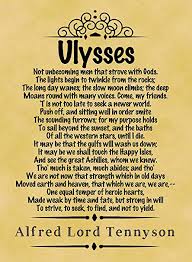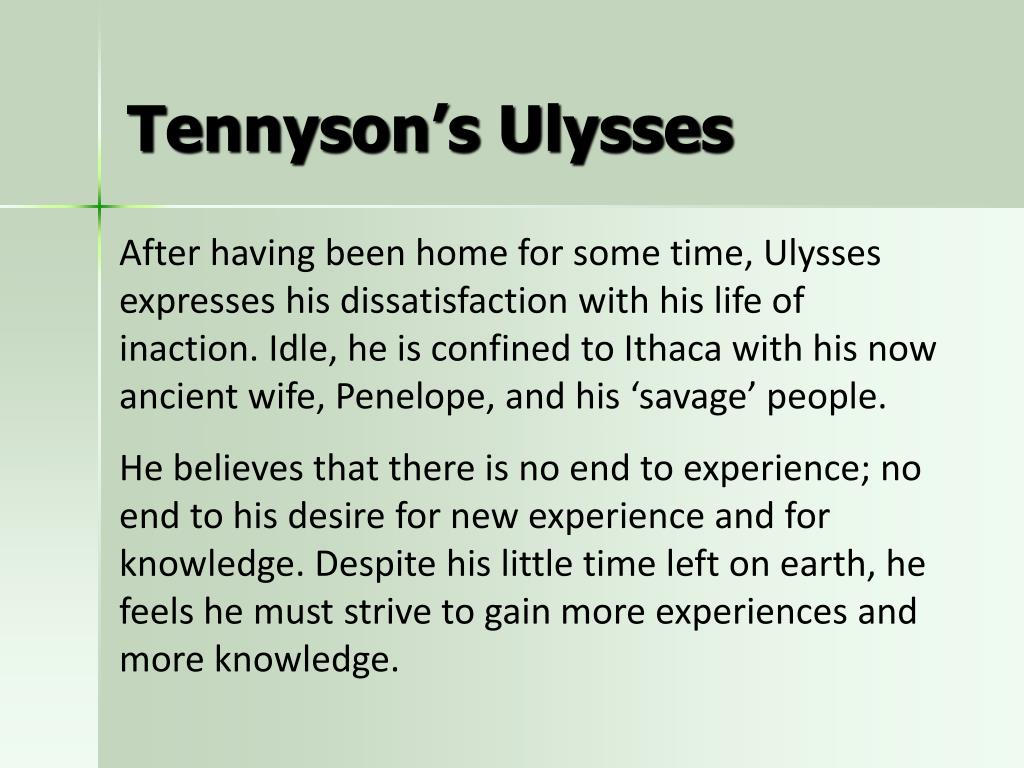

My students almost always have a positive view of Ulysses because his message – follow one’s heart – is something which speaks to their hearts. Said” – Tennyson’s skill in this poem is demonstrated by what one hears versus what Ulysses says. The syntax of the poem, at times, confounds some students, but even so everyone finds something in the poem to which he or she responds. The spirit of adventure and desire to follow one’s heart speak loud and clear to all the students. Student response to this poem is always positive. What is the role and/or what are the rights of the aged in society? What are appropriate venues for their energies when they are “Made weak by time and fate, but strong in will” (l. But, this adventuring life is not one he takes up as a young man, but rather as an old man who has already spent 20 years adventuring.

For Ulysses, the King of Ithaca, he has opted for a life of adventuring rather than ruling his people. Thematically, the poem asks a great question of what one’s life is meant to be. 56-57) for “we are – One equal temper of heroic hearts, / Made weak by time and fate, but strong in will / To strive, to seek, to find and not to yield” (l. In the final stanza, Ulysses makes his final argument to his old crew of his return voyage from Troy for why they should join him, “Come, my friends, / ‘Tis not too late to seek a newer world” (l. In the third stanza, he discusses his son, Telemachus, and how well Telemachus rules the people of Ithaca. In the second, he expands this grievance, telling his listeners what things he has done and contrasting those events with the life he has now: “As though to breathe were life! Life piled on life / Were all too little” (l. In the first stanza, Ulysses establishes his initial grievance with his life. The poem is divided into four unequal stanzas that each articulate an argument of Ulysses’ speech. He set sail with his men, heading west into unexplored waters to seek adventure. In Dante’s work, Ulysses explains to Dante that after returning to Ithaca, he grew restless and decided to return to the sea. “Ulysses” is a seventy line poem written by Alfred Lord Tennyson which expands upon Dante’s tale of Ulysses from Canto 26 of the Inferno.


 0 kommentar(er)
0 kommentar(er)
